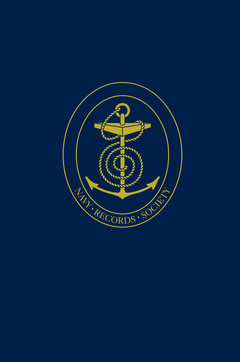Description
The Beatty Papers: Selections from the Private and Official Correspondence of Admiral of the Fleet Earl Beatty: v. 1: 1902-18
Selections from the Private and Official Correspondence of Admiral of the Fleet Earl Beatty
Author: Ranft B.McL.
Language: English
Subject for The Beatty Papers: Selections from the Private and...:
Approximative price 56.31 €
In Print (Delivery period: 14 days).
Add to cartPublication date: 04-2019
Support: Print on demand
Approximative price 164.74 €
In Print (Delivery period: 14 days).
Add to cartPublication date: 04-2019
· 15.2x22.9 cm · Hardback
Description
/li>Contents
/li>Biography
/li>
David Beatty joined the Victorian Navy in 1884. His early career therefore occurred at a time of great technological, tactical and strategic challenges to the Royal Navy.
In 1910 he was promoted to Rear Admiral, and from 1912 served as Naval Secretary to Winston Churchill, the First Lord of the Admiralty. This role in turn led to his command of the Battle Cruiser Squadron, with which he entered the war.
The early years of the war saw much frustration. There was also disappointment at the failure to bring about a decisive action with the German navy. The Battle of Jutland (May 1916) led to his often quoted comment, ?There seems to be something wrong with our bloody ships today?. Attempts to learn lessons from the battle ? and attribute blame ? would long outlast the war.
In November 1916, Beatty was appointed Commander-in-Chief, with Jellicoe, his predecessor in this position, becoming First Sea Lord. His main concerns in this position included solving the problems revealed by Jutland, countering the U-boat threat, maintaining morale in the Royal Navy and prosecuting the increasingly effective blockade of Germany.
For Beatty, the war ended triumphantly, with his receiving the surrender of the German fleet. In 1919, he became First Sea Lord and was promoted to Admiral of the Fleet and he retired in 1927.
This volume spans the period up to the end of the First World War. The first section covers Beatty?s career as a Captain, to set the context for the bulk of the volume, which focuses on the War itself. The Battle of Jutland is covered fairly briefly here, with Beatty?s immediate reaction; his later thoughts can be found in Volume II (NRS Volume 132).
The documents included have come mainly from Lord Beatty?s personal collection (at the National Maritime Museum), but also from the Imperial War Museum and the archives of Churchill College, Cambridge. Official papers from the National Archive and the British Library are not included. Both the subject, and some individual documents, overlap with the Navy Record Society collections, Volume 108: The Jellicoe Papers, Volume I (1966) and Volume 111: The Jellicoe Papers, Volume II (1968), both edited by A Temple-Patterson.
PART 1 Prelude to High Command 1902-1912, PART II The Battle-Cruiser Squadron to the Eve of War 1913-14, PART III Heligoland Bight and the Scarborough Raid 1914-15, PART IV The Dogger Bank and After 1915-16, PART V Jutland- Early Reactions 1916, PART VI Commander-in-Chief Grand Fleet 1916-18. Indexes.
These books may interest you

The Jellicoe papersVol. I 58.78 €



